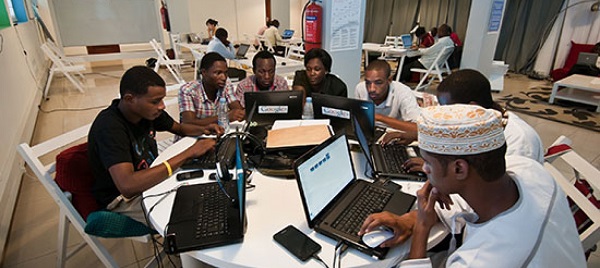
The Coronavirus Disease 2019 (COVID-19) pandemic, more than any event in the history of the human race, has highlighted the important role telecommunications play in connecting businesses, governments and the society at large.
As a result of the economic and social disruptions caused by the pandemic, more people across the globe have become increasingly reliant on telecommunications infrastructure for information, meeting social distancing restrictions and working from home.
Also, one of the most dynamic developments related to the digital economy has been the rise of social network sites which has set the stage for unprecedented platforms of social interactions, dialogue, exchange and collaboration. These platforms have opened up multiple avenues for entrepreneurship, business connectivity and engineered several activities that support ease of doing business in Nigeria. Clearly access to the internet and the platforms have bridged the gap between entrepreneurs in other climes with young Nigerian business owners.
The increased reliance on telecommunications, as well as the growth experienced in the sector has introduced some issues of legal connotation which brings to the fore the need to protect the rights of online users as well as adequate regulatory measures that would enhance development in the communications sector of the economy.
Speaking during the opening ceremony of the 2021 edition of the annual workshop organized for judges on legal and regulatory issues in telecommunication with the theme – ‘Adjudicating in a fast-paced world of technology and digital presence’ organized by the NCC in conjunction with the National Judicial Institute (NJI) in Abuja, the NCC executive vice chairman, Prof. Umar Danbatta, pointed out that one of the possible areas of contention among online users is the ownership of online content and materials.
“It is envisaged that with the increase in the amount of online content, as well as the economic value attached to it, there will be a conflict as to ownership of online content and materials. It is necessary that your lordships are well prepared for the imminent increase in litigation in this area. Also with an increase in the number of transactions and businesses taking place in the online space, it is also expedient for your lordships to be exposed to the peculiarities of adjudicating conflicts in this era of digital presence and online identity,” he said.
Danbatta said the aim of the forum was to further build the capacity of judges with practical insights on the emerging issues in the field of telecommunication, and enhance the capacity of the judiciary to dispense justice in telecommunication’s cases from an informed position oriented in appropriate and contemporary knowledge.
He said this year’s workshop theme was not only apt but actually captured the areas where our traditional ways of life are most challenged, stating that the workshop would try to illuminate the challenges and proffer ways to meet the dynamics of the changing times.
“Based on the feedbacks received from participants in previous editions and the current state of jurisprudence on telecommunication issues, the commission has high hopes that the current workshop will further contribute to the development of telecommunication’s law in Nigeria,” he added.
In his address, the Chief Justice of Nigeria and chairman, board of governors, National Judicial Institute, Justice Tanko Muhammad, said telecommunication plays a pivotal role in the advancement and enhancement of the economic prosperity of any nation and its people and was the foundation for private businesses and inter-governmental connections.
He added that the institute had continuously supported the workshop for judges, which had over the years expanded the horizon of judicial officers with regard to emerging issues in the telecommunication sector.
Muhammad noted that the annual workshop for judges of superior courts was in addition a forum to avail judges the opportunity of coming together every year to discuss common problems and exchange ideas and experiences for the enrichment of their held annual sector.
He observed a significant increase in the number of service providers in the telecommunication sector which makes it more competitive and prone to abuse, adding some of the risks to consumers had resulted in a number of disputes and challenges which end up in courts for adjudication.
“Consequently, the growing need for consumer protection in this sector is increasingly becoming complex for courts and the regulator in the converged setting of today,” he said.
Represented by Justice John Okoro, the CJN said the workshop essentially would avail the participants an opportunity to rub minds on current challenges confronting the telecom sector, stressing the judiciary on its part would not rest on its oars “as we will continue to interpret the relevant laws in line with extant provisions of the law”.
“Let me assure you that the Nigerian judiciary is committed to the development of the telecommunication sector and will spare no effort in ensuring transparent and speedy dispensation of justice. In this light, investors and stakeholders in the sector will be assured that their assets and investments are secured,” he added.
In her remarks, the NJI administrator, Justice Roseline Bozimo, highlighted that the National Judicial Institute is the only statutory body with the mandate of conducting continuing judicial education for all categories of judicial officers and their supporting staff.
According to her, the 2021 workshop on legal issues in telecommunication is expected to explore contemporary legal issues and current trends in the sector as well as the responses of judicial officers to issues.


